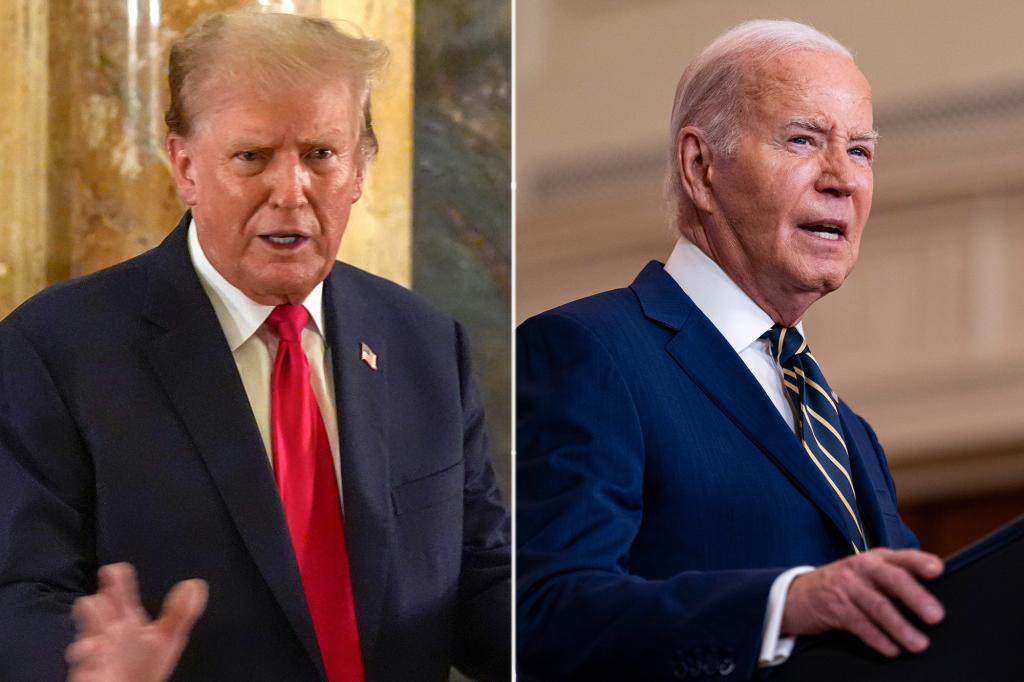Trump says he won’t seek revenge against Biden if elected.
Amidst the ongoing political turmoil in the United States, former President Donald Trump has once again made headlines with his recent statements regarding the possibility of seeking retribution against President Joe Biden if he is elected for a second term. Trump, who has been out of the Oval Office for several years now, is still a prominent figure in the political landscape and continues to wield influence over his supporters.
In a recent interview, Trump downplayed talk of seeking retribution against Biden, stating that he is focused on looking forward rather than dwelling on the past. However, his words have sparked speculation about his intentions if he were to return to the White House in the future. The idea of a political vendetta against his successor has raised concerns among both Democrats and Republicans, with many questioning the implications of such actions on the country’s political climate.
Trump’s tumultuous term as President was marked by controversial policies, divisive rhetoric, and numerous legal battles. His tenure came to an end with the 2020 election, which he lost to Biden amidst widespread allegations of voter fraud and election irregularities. Since then, Trump has remained active in the public eye, continuing to rally his base and criticize the current administration’s policies.
Despite facing multiple legal challenges and investigations during his time in office, Trump has managed to evade any serious consequences thus far. However, the recent indictments of several of his associates have once again brought the specter of legal troubles back into focus. The possibility of Trump himself facing criminal charges in the future remains a contentious issue, with many speculating on how he would respond if such a scenario were to unfold.
During his interview, Trump hinted at the idea of seeking retribution against Biden over the ongoing investigations and potential indictments involving his associates. While he stopped short of confirming any specific plans, his comments have reignited concerns about the politicization of the justice system and the rule of law. Many fear that a return to power for Trump could lead to further erosion of democratic norms and institutions.
Trump’s supporters, however, have dismissed these concerns as unfounded, arguing that he is merely exercising his right to free speech and expressing his opinions on current affairs. They maintain that Trump has been unfairly targeted by his political opponents and the media, and that any legal actions against him or his associates are politically motivated.
As the political landscape in the United States continues to be dominated by partisan divides and ideological clashes, Trump’s remarks have once again highlighted the polarizing nature of his leadership. His ability to capture the attention of the public and shape the national discourse remains undiminished, despite his absence from the presidency.
Looking ahead, the prospect of Trump seeking retribution against Biden or engaging in a political vendetta raises important questions about the future of American democracy and the rule of law. The delicate balance between holding public officials accountable and avoiding partisan witch hunts must be maintained to ensure the integrity of the justice system and the functioning of government.
Regardless of the outcome of the ongoing investigations and legal proceedings, one thing is clear: Trump’s influence on American politics is far from over. Whether he chooses to seek retribution against Biden or not, his presence will continue to loom large over the national discourse, shaping debates and shaping opinions for years to come.








